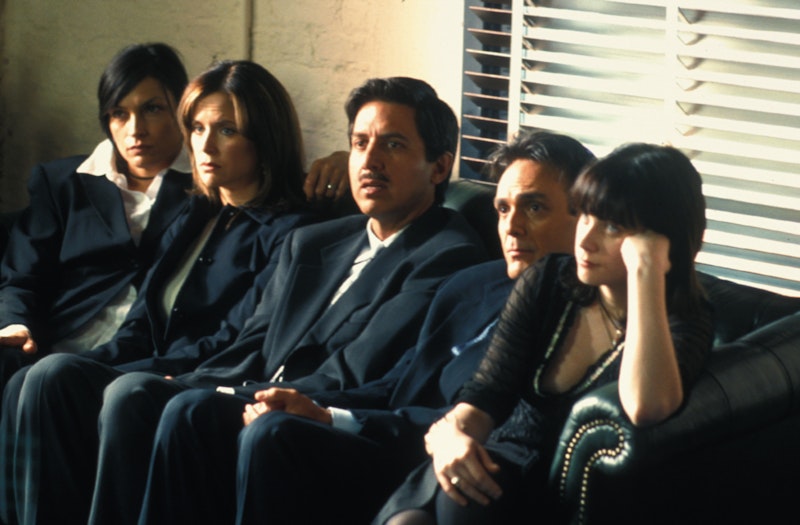I can’t draw. I don’t understand math. My short-term memory is barely there. But for whatever reason, I remember every single movie I’ve ever seen and the theater I saw it in, or whether or not I watched it at home. I started researching and writing about American films of the 2000s late last year in part because my long-term memory is so ironclad: Flubber sold out at the Loews 19th St. East 6; How the Grinch Stole Christmas in the balcony in the main theater at the United Artists Union Square 14; walking out of The Alamo remake at Towson Commons 8. Besides near total recall of the movies themselves and my thoughts at the time—and their correspondence with how I feel now—I can see the theater, the size of the crowd, the trailers that played beforehand. I never needed to see Cast Away because the trailer gave it away.
But there have been a few exceptions that prove the rule—strangely, they came on the same weekend: I was half an hour into 2004’s In Good Company when Topher Grace said the word “synergy” that I remembered that this was the movie that ended with Malcom McDowell giving a corporate speech and emphasizing the word “synergy,” which I hadn’t heard before. As soon as Grace said that key word, it all came back, and like Spanglish, this was one of the 2000s movies that I couldn’t appreciate as a 12-year-old. Although by no means on par with James L. Brooks, In Good Company is exactly the type of light adult drama that isn’t being made anywhere in America now, not even on television (2005’s The Family Stone is another excellent example).
Another word I learned in 2004 was “eulogy,” because I’m sure I asked my dad what it meant when we went to see it at the Rotunda Cinematheque. Scrolling through Amazon Prime, I saw the title and movie’s poster—the ensemble cast in a fishbowl—and, once again, it all came dripping back. How could I forget? Check out the cast: Zooey Deschanel, Hank Azaria, Ray Romano, Piper Laurie, Famke Janssen, Kelly Preston, Debra Winger, and Rip Torn. I remembered most of it as it began, but realized I had been conflating it with the 2007 U.K. film Death at a Funeral, which I also saw with my dad at the Rotunda. There isn’t much similarity between the two, besides a series of comic missteps leading to greater understanding and empathy at a funeral.
Rip Torn is the dead patriarch in Eulogy, and the family act like those of Dan in Real Life and The Family Stone: an amoeba, six or seven parts of one whole, a messy and loud and neurotic assortment. Something else in common with The Family Stone is an openly homophobic woman: Sarah Jessica Parker asks her fiancé’s gay brother if he thinks it’s “right” for two gay people to raise a kid who wants to be normal, and Debra Winger is constantly giving her sister shit for being a lesbian (all while closeted herself). This is another common theme of American films of the 2000s: the kinds of very special scenes that decades before dealt with race. “Interracial marriage” was hardly an issue in the Northeast in 2005, but gay marriage? Don’t you remember what Hillary Clinton and Barack Obama had to say about it?
Something else that really surprised me about Eulogy is how poorly it performed at the box office: just $90,000 against a $10 million budget. Even crazier is that the film was only released in 22 theaters in the United States, including the Rotunda Cinematheque. I had no idea at the time, but we were seeing a Baltimore special. Were they even playing Eulogy in New York? With such a superb cast, why was this movie buried? It’s certainly better than Dan in Real Life, and not at all morbid—is it the ending? That one came flashing back to me as it happened: Rip Torn led a triple life, with three (or four) secret families across the country. The one in New England was his favorite, though. This isn’t a practical joke or a mistake: the ending of Eulogy is the family we’ve grown to know and love in the last 85-minutes were raised by a conman who did the same thing to at least a dozen other people.
That’s exactly the type of bizarre, impossible to resolve, and inexplicably silly and tragic ending that I love that rarely makes it into popular cinema. You may be turned off by it at the time, but you’ll never forget it, even if you did—like me.
—Follow Nicky Smith on Twitter: @nickyotissmith

